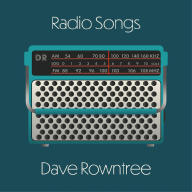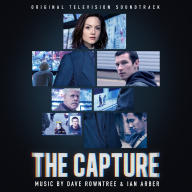The child of musical parents -- his father was an engineer at the BBC -- Dave Rowntree was born in Colchester, Essex on May 8, 1965. He learned percussion at an early age, studying music at Landermere Music School, Thorpe-le-Soken and playing in a brass band called Colchester Silver Band with his father. As a teenager, he often played with Graham Coxon, a guitarist whose father taught jazz at Landermere. After graduating with a degree in computer science, Rowntree worked as a computer programmer and played music at night, including with a group with Coxon called Idle Vice. Rowntree spent some time busking and playing in punk bands in France before Coxon recruited the drummer to join a band with his friend, vocalist Damon Albarn, with the trio adding bassist Alex James in 1989. Originally called Seymour, the band became Blur when they signed to Food Records in 1990.
Blur's career got off to an audacious start when "There's No Other Way" became a Top Ten single in 1991 but the band struggled to maintain momentum. They were beat down by an extensive American tour and their barbed 1992 single "Popscene" stiffed. Albarn strengthened his resolve and redesigned Blur as a celebration of British culture on 1993's Modern Life Is Rubbish, an aesthetic makeover that hit paydirt with 1994's Parklife. A multi-platinum number one smash, Parklife ushered in the heady days of Brit-pop, an era filled with hooky pop tunes, stylish retro fashions, and hedonistic good times. Blur remained at the center of Brit-pop throughout the '90s, descending into a hotly hyped rivalry with Oasis which cemented their status as mainstream stars. Blur were also the first of their peers to step away from the swinging spotlight, weaving American indie sounds into their eponymous 1997 album, a process that led to their first hit in the U.S. with "Song 2."
In the wake of "Song 2," Rowntree began to explore interests outside of Blur. He and Alex James became involved with the publicity campaign for Beagle 2 Mars mission, an ambitious U.K.-based space program that eventually went out to space manned with a specially written Blur tune. In 2001, he founded a computer animation company called Nanomation, an organization that was active for over a decade. He also directed episodes in two seasons of the comedic animated series Empire Square which debuted in 2004. Its premiere coincided with Blur going on hiatus. Rowntree initially spent his post-Blur time drumming in the Ailerons, a one-off indie rock band who released the EP Left Right in October 2006, but he soon turned his attention away from music and toward the law.
Beginning in 2006, he trained to become a solicitor, eventually working as a criminal law lawyer in the London-based firm Kingsley Napley. Rowntree first ran as a Labour Party Candidate in 2008, then again in 2011, losing both races. He was elected as county councilor for the University ward in Norwich in 2017; he stood down from the 2021 election.
Rowntree's political career coincided with further activity from Blur. The band reunited for a concert at Hyde Park in 2009, returning to that locale again in 2012 for a concert to coincide with the 2012 Summer Olympics closing ceremony. This 2012 show led to further concerts in 2013, which in turn provided the genesis for The Magic Whip, a new Blur studio album in 2015.
Starting in 2014, Rowntree had a weekly radio show on Global Radio's XFM; for a few years, he'd play his favorite songs on the program. After scoring a short film called Teeth and Pills in 2016, he began regularly working as a film composer. He scored the 2016 Mo Farah: No Easy Mile, collaborated with Ian Arber for the music for the 2018 documentary Bros: After the Screaming Stops, and composed music for the 2019 BBC series The Capture, as well as the 2021 Netflix series The One. In 2022, he launched The Dave Rowntree Podcast Show just prior to the release of Radio Songs, his first solo album. Preceded by the single "London Bridge," Radio Songs appeared in January 2023. ~ Stephen Thomas Erlewine, Rovi







